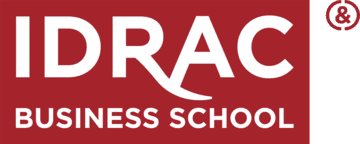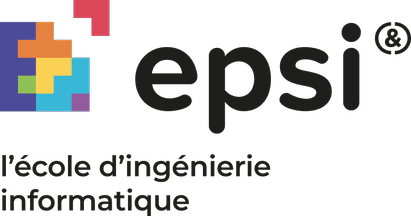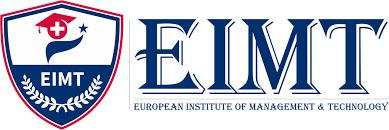France
France
Courses In France
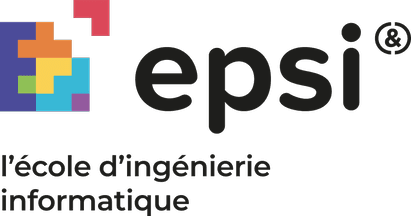 Dual Degree
Dual DegreeMBA Artificial Intelligence and Data Science
EuroAmerican Education
 France15 to 18 Months
France15 to 18 Months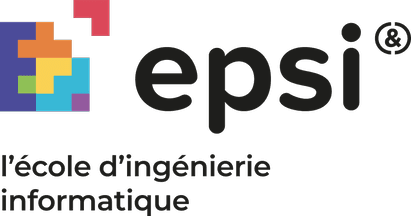 Dual Degree
Dual DegreeBachelor AI Developer
EuroAmerican Education
 France3 Years
France3 Years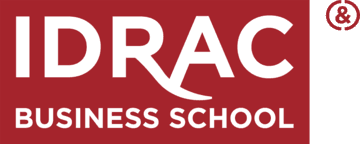 Dual Degree
Dual DegreeMBA in Luxury Marketing and Innovation
EuroAmerican Education
 France15-18 Months
France15-18 Months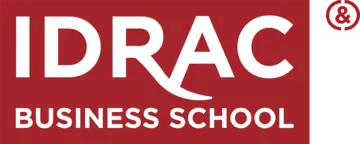 Dual Degree
Dual DegreeBachelor of Marketing and Business
EuroAmerican Education
 France3 Years
France3 Years Degree
DegreeMaster of Computer Science
EuroAmerican Education
 France18 Months
France18 Months Dual Degree
Dual DegreeBachelor’s Degree in Cybersecurity, Cloud, Systems and Networks
EuroAmerican Education
 France3 Years
France3 Years Dual Degree
Dual DegreeMBA Big Data & Artificial Intelligence
EuroAmerican Education
 France2 Years
France2 Years Dual Degree
Dual DegreeMBA SAP Finance & Accounting
EuroAmerican Education
 France2 Years
France2 Years
Study in France

France stands out as a premier study destination, offering a world-class education system, a thriving business ecosystem, and a rich cultural heritage. Renowned for innovation, research, and global business influence, France provides students with unparalleled academic and professional opportunities in luxury, fashion, technology, and entrepreneurship.
France is known for its advanced technology, strong infrastructure, and innovation-driven environment, making it an ideal destination for international students. The country boasts cutting-edge research facilities, smart campuses, and high-speed internet connectivity across universities. Institutions offer hands-on experience to students in emerging fields such as AI, cybersecurity, data science, business administration, information systems and technology, and renewable energy. France’s modern public transportation system, well-developed urban planning, and eco-friendly initiatives ensure a comfortable and sustainable living experience.
As of 2024, more than 400,000 international students have chosen France for their higher education journey, a number that has grown by 17 per cent since 2018. Paris alone accommodates over 100,000 of these students annually, making it one of the world’s leading cities for higher education.
This guide explores France’s education ecosystem with a strong focus on Paris, offering data-backed insights on academics, living costs, scholarships, part-time work, and long-term opportunities.
Why Choose France for Studying Abroad?
France isn't only famous for its art, wine, fashion and iconic architecture—it is also one of the best places on earth to get higher education. With a firm focus on elite academic culture, research excellence and affordability, France is continuously being ranked as one of the world's top nations for education and student life. The universities in France have been around since the 12th century, with the University of Paris (founded in the mid-1100s) being one of the oldest. Today, France offers a modern, research-orientated academic environment with no compromise on quality, and welcomes a rising number of international students annually.
The education system in France is internationally acclaimed for integrating conceptual knowledge and practical learning, especially in STEM, business, and applied sciences. Public universities offer various tuition-free or low-cost study programmes—even for international students—which is a rare benefit compared to other global study destinations.
France also provides robust career support, post-study work opportunities, and a high standard of living. These advantages make France an ideal choice, especially for students pursuing education in engineering, natural sciences, business, and information technology.
Global Rankings and Key Statistics:
- Global overall education ranking – No. 8 worldwide (U.S. News & World Report, 2024)
- Top European nations for higher education – No. 3 overall in Europe (SIEC India, 2024)
- International student body – Over 400,000 international students enrolled in 2024/25 (Campus France, 2025)
- Research output and innovation – Ranked in the top 12 globally for research quality and innovation (OECD, 2024)
- #2 in Europe for scientific publications and R&D spending (Eurostat, 2024)
- Post-study work rights – Up to 2 years post-study visa for master's graduates (Campus France, 2024)
- Most in-demand fields among international students – Business, International Relations, and Engineering (Campus France & Apply Board, 2025)
- 35 French institutions in the QS World University Rankings 2024
- #7 globally in the Global Competitiveness Index for Higher Education and Training (World Economic Forum, 2024)
- Return on investment in international students – Among the highest in the EU (OECD, 2024)
France’s education model promotes analytical thinking, creativity, global citizenship, and intercultural collaboration. Whether pursuing a bachelor’s, master’s, or PhD, students benefit from internationally respected qualifications, exposure to multilingual environments, and strong ties between academia and industry.
Many programmes in France are taught in English, especially at the graduate level, and students are encouraged to learn French during their stay to unlock even more professional and social opportunities.
Career Prospects After Studying in France with EuroAmerican Education

Studying in France through EuroAmerican Education opens up a wide array of global career opportunities. With access to dual-accredited programmes, students earn degrees recognised both in Europe and worldwide, giving them a competitive edge in the international job market. Moreover, EuroAmerican Education equips students with cross-cultural communication skills, multilingual proficiency, and practical knowledge, making them highly employable.
Key Career Advantages:
➡️ Post-Study Work Opportunities – Graduates can apply for the Autorisation Provisoire de Séjour (APS), allowing them to stay and work in France for up to two years.
➡️ Access to the European Job Market – Eligibility to work in any EU country, expanding career prospects.
➡️ High-Demand Industries – Thriving sectors include Technology, Business, Luxury, Fashion, and Healthcare.
➡️ Strong Alumni & Employment Support – Extensive alumni networks, industry connections, and government-backed employment programmes provide career guidance and job placement support.
With EuroAmerican Education, students gain world-class qualifications and global employability, ensuring a successful career in France, Europe, and beyond.
France’s Higher Education System: A Global Hub for Technology and Management Studies

With more than 3,500 officially recognised public and private institutions—including universities, grandes écoles, and specialist institutes—France offers diverse academic paths for bachelor’s, master’s, and doctoral students from all over the world. Key institution types include:
Universities: French public universities emphasise theoretical learning and academic research. They offer degrees in fields such as computer science, economics, and business administration.
Grandes Écoles and Institutes: Highly selective and well-recognised, these schools focus on hands-on training and professional expertise. They are especially suitable for students in IT, entrepreneurship, and management.
Specialised Institutions: These include business schools, engineering schools, and tech academies that offer internationally recognised niche programmes.
Industry-Aligned Education
In technology and engineering, France offers strong programmes in software development, artificial intelligence, and cybersecurity.
In business and management, French institutions are known for academically rigorous and industry-relevant curricula. Many collaborate with international companies, innovation hubs, and startup ecosystems, preparing students for leadership roles in global organisations.
Bologna-Structured, Internationally Accredited Degrees
All degrees in France follow the Bologna Process, aligning with the European Higher Education Area (EHEA). Students graduate with:
Bachelor’s Degrees: 3 years (180 ECTS)
Master’s Degrees: 2 years (120 ECTS)
Doctorates: 3 years (usually up to 240 ECTS)
This academic structure allows smooth mobility between European institutions and supports global career opportunities.
Admission Requirements for International Students in France

Applying to study in France is an easy process, although it varies depending on the university and programme. Students typically apply directly to the preferred institution or via designated national portals. Public universities offer low-cost or free applications, while private institutions may charge a fee.
Required Documents:
CV (Curriculum Vitae)
Passport
Recent photo
Personal ID card
Language proficiency score (French or English, depending on the course)
Academic transcripts (high school for bachelor’s; bachelor’s degree for master’s; master’s degree for doctoral studies)
Motivation letter
Academic Qualifications:
Bachelor’s Programme: High school diploma or equivalent.
Master’s Programme: Bachelor’s degree in a related field.
Doctoral Programme: Master’s degree in a relevant field.
Language Proficiency: Students must demonstrate proficiency in English.
Application Deadlines:
Public Universities: The academic year usually starts in September, with deadlines in the early months of the year. Always check the specific university’s website.
Private Institutions: These may have rolling admissions with varied deadlines. Refer to each school’s website for exact information.
International Student Budget Breakdown – France

Living cost for foreign students in France is normally between €850 and €1,200 per month, including rent, food, insurance, transportation, and other essentials. Budget may vary by city, lifestyle, and accommodation choice.
| Expense Category | Monthly Cost (€) | Yearly Cost (€) |
| Tuition Fees (Public Univ.) | €0 – €230 | €0 – €2,770 |
| Study Materials | €20 – €50 | €240 – €600 |
| Accommodation | €300 – €700 | €3,600 – €8,400 |
| Food & Groceries | €150 – €300 | €1,800 – €3,600 |
| Health Insurance | €215 | €2,580 |
| Transportation | €40 – €75 | €480 – €900 |
| Utilities & Internet | €50 – €100 | €600 – €1,200 |
| Miscellaneous | €100 – €200 | €1,200 – €2,400 |
| Total Estimated Budget | €875 – €1,870 | €10,500 – €22,750 |
Moving Around the City
France provides excellent public transport systems—metros, buses, trams, and regional trains—with student discounts available on monthly and annual passes for cost-effective travel within cities and regions. Its well-connected infrastructure supports safe and convenient travel, allowing students to explore both urban and cultural surroundings easily.
Scholarships and Financial Assistance
France is one of the most generous countries in Europe when it comes to scholarships for international students.
Key Scholarship Opportunities
Eiffel Scholarship: Funded by the French Ministry of Europe and Foreign Affairs, it offers a monthly stipend of €1,181 plus coverage for international airfare and health insurance.
Charpak Program: Available for students from specific countries such as India; covers tuition and living expenses.
Erasmus+ Mobility Grant: For those enrolled in dual-degree or exchange programmes, offering up to €1,200/month.
The French government allocates approximately €470 million annually to support international students, reflecting its commitment to maintaining its global education appeal.
Internships & Part-Time Work in France for International Students
International students in France are legally permitted to work part-time alongside their studies, up to 964 hours per year, which is about 20 hours per week during the academic year and full-time during vacations. This includes internships, part-time jobs, and student assistant positions.
Mandatory and voluntary internships are common in sectors like business, and IT. Many French and international companies operating in France offer structured internship programmes.
Student jobs at universities—such as assistant roles in administration or library services—are often aligned with the academic calendar and provide flexible schedules for students.
Student work is subject to French minimum wage regulations (SMIC), which ensures fair compensation. Part-time work gives students the opportunity to earn income and gain professional experience in the local job market.
EU/EEA students have unrestricted access to the French labour market. Non-EU students can also work without needing a separate work permit, provided their annual work hours do not exceed the legal limit of 964 hours.
General Guidelines for Visa Process for International Students in France

International students from non-EU countries who want to study in France are required to obtain a French Long-Stay Student Visa (VLS-TS). The visa system is designed to allow students to enter, live and study in France legally. The following is a comprehensive description of the visa process and requirements:
Visa Application Requirements:
Admission Letter
You need to submit an official letter of acceptance from a legitimate French university. This proves the admission into an intensive degree course.
Proof of Financial Resources
International students need to prove their financial stability to cover the living costs during their stay in France. The amount required is €7,920 annually, which can be demonstrated through a bank statement, financial guarantor, or proof of scholarship.
Health Insurance:
All students are required to have health insurance. Students under 28 years enrolled in a French higher education institution are generally covered under the national student health insurance system. Private insurance coverage is also acceptable.
Language Proficiency:
Subject to the language of teaching in the course, students are required to provide evidence of language proficiency. This may be French (for French-taught courses) or English (for English-taught courses).
Visa Fee:
An application fee of €99 is paid for processing the application for the French Long-Stay Student Visa.
Passport:
Students should submit a valid passport with a minimum validity of 6 months after the planned stay in France.
Resident Permit Processing:
International students are required to validate their visa online upon arriving in France. This validation acts as a residence permit. Proof of admission to the university, financial means, health insurance, and a valid passport are required. The validation fee is approximately €50. Students are allowed to live, study, and work part-time during their stay.
Application Process:
- Students have to apply for a visa at the French Embassy or Consulate in their native country or country of residence.
- Lodge all required documents, including the application form, and attend an interview if required.
- It usually takes 6–8 weeks to process the visa, so students must apply in advance.
Upon Arrival in France
International students must validate their Long-Stay Student Visa (VLS-TS) online within three months of arrival. After this, they will receive confirmation of their residence permit, which allows them to stay in France for the duration of their studies. Required documents include proof of financial resources, health insurance, university admission, a valid passport, and the visa.
Additional Information:
Visa Extensions: Students must apply for a renewal of their residence permit before it expires by contacting the local authorities.
Post-Graduation Stay: Graduates can apply for a temporary residence permit to search for a job in their field of study.
Supportive Framework: France ensures a structured and supportive legal environment for international students to study and work during and after their academic journey.
Career Perspectives for Students Post Achieving Their Degrees in France

France’s strong economy, global industrial presence, and research-driven innovation environment offer excellent career prospects for international students. With a 12-month post-study work visa for non-EU graduates, EU Blue Card eligibility for high-skilled professionals, and consistent demand for skilled workers, graduates can benefit from a dynamic and globally connected job market. France’s central role in the European Union also opens up broader access to employment opportunities across Europe.
Support Mechanisms for International Alumni
- 12-month post-graduation job search visa
- EU Blue Card eligibility for high-skilled employment
- High employability in France and within the EU
- Competitive salaries, especially in sectors like technology and management
Management Graduates
- France’s role as a major economic and business hub in Europe provides management graduates with vast opportunities in multinational firms, banks, and startups—especially in major business centres like Paris, Lyon, and Marseille.
- The EU membership and strong international partnerships make France a key destination for those seeking regional and global career advancement.
Technology Graduates
- France is an established hub for technological innovation, particularly in AI, software development, engineering, and green technology. Cities like Paris, Toulouse, and Grenoble are known for their strong tech ecosystems and collaboration with international firms.
- Graduates benefit from exposure to pioneering projects and international recognition, making it an ideal location for cross-border tech careers.
Business, Management, and Technology Graduates
France, home to some of the world’s leading multinational companies and innovation hubs, offers abundant opportunities for graduates in business, management, and technology. Major cities such as Paris, Lyon, and Toulouse are economic powerhouses, hosting corporate headquarters, fintech startups, and research clusters.
Graduates benefit from strong industry-academic partnerships, internships, and the potential to work with global brands like L’Oréal, Airbus, Dassault Systèmes, Capgemini, and BNP Paribas. France’s strategic location within Europe also makes it an ideal launchpad for international careers in leadership, tech innovation, and entrepreneurship.
Additional Perks for International Graduates
- 12-month post-graduation job search visa
- EU Blue Card eligibility for high-skilled roles
- Strong employability in France and across the EU
- Competitive salaries in growing sectors
Conclusion
France offers a powerful combination of high-quality education, rich cultural exposure, and robust career opportunities for international students. Whether in management or technology. France provides a strong foundation for both academic growth and professional success. With its excellent academic reputation, innovative industries, and welcoming environment, France stands out as a premier study abroad destination. With the right preparation and mindset, studying in France is a smart investment for a successful and globally orientated future.
Blogs In France

- Mar 11, 2025
- Technology

- Mar 11, 2025
- Technology

- Mar 11, 2025
- Management

- Nov 19, 2025
- Technology

- Mar 13, 2025
- Technology

- Mar 13, 2025
- Hospitality

- Mar 17, 2025
- Technology

- Apr 4, 2025
- Management

- Apr 10, 2025
- Hospitality

- Apr 7, 2025
- Technology

- Sep 18, 2025
- Management

- Apr 3, 2025
- Technology

- Apr 25, 2025
- Technology

- Oct 22, 2025
- Hospitality

- May 30, 2025
- Hospitality

- Jun 5, 2025
- Technology

- Jun 6, 2025
- Management

- Jun 10, 2025
- Hospitality

- Jul 9, 2025
- Technology

- Jul 10, 2025
- Hospitality

- Jul 10, 2025
- Hospitality

- Jul 11, 2025
- Hospitality

- Jul 12, 2025
- Hospitality

- Jul 12, 2025
- Technology

- Jul 14, 2025
- Technology

- Jul 15, 2025
- Technology

- Jul 15, 2025
- Technology

- Jul 16, 2025
- Management

- Jul 16, 2025
- Technology

- Jul 21, 2025
- Management

- Jan 21, 2026
- Management

- Jul 31, 2025
- Management

- Aug 5, 2025
- Management

- Aug 21, 2025
- Technology

- Aug 22, 2025
- Technology

- Aug 25, 2025
- Technology

- Aug 29, 2025
- Management

- Aug 30, 2025
- Management

- Oct 22, 2025
- Technology

- Jan 1, 2026
- Technology

- Dec 29, 2025
- Management

- Feb 16, 2026
- Management

- Oct 6, 2025
- Technology

- Sep 12, 2025
- Management

- Sep 24, 2025
- Management

- Sep 26, 2025
- Management

- Oct 1, 2025
- Technology

- Oct 8, 2025
- Management

- Oct 11, 2025
- Management

- Oct 13, 2025
- Management

- Oct 22, 2025
- Technology

- Oct 31, 2025
- Hospitality

- Nov 7, 2025
- Management

- Nov 6, 2025
- Technology

- Dec 8, 2025
- Technology

- Jan 7, 2026
- Hospitality

- Nov 12, 2025
- Management

- Nov 20, 2025
- Hospitality

- Feb 2, 2026
- Technology

- Nov 26, 2025
- Technology

- Dec 17, 2025
- Management

- Dec 18, 2025
- Technology

- Dec 22, 2025
- Technology

- Dec 24, 2025
- Hospitality

- Dec 26, 2025
- Technology

- Dec 30, 2025
- Technology

- Jan 6, 2026
- Arts and Humanities

- Jan 12, 2026
- Hospitality

- Jan 14, 2026
- Hospitality

- Jan 15, 2026
- Management

- Jan 27, 2026
- Technology


